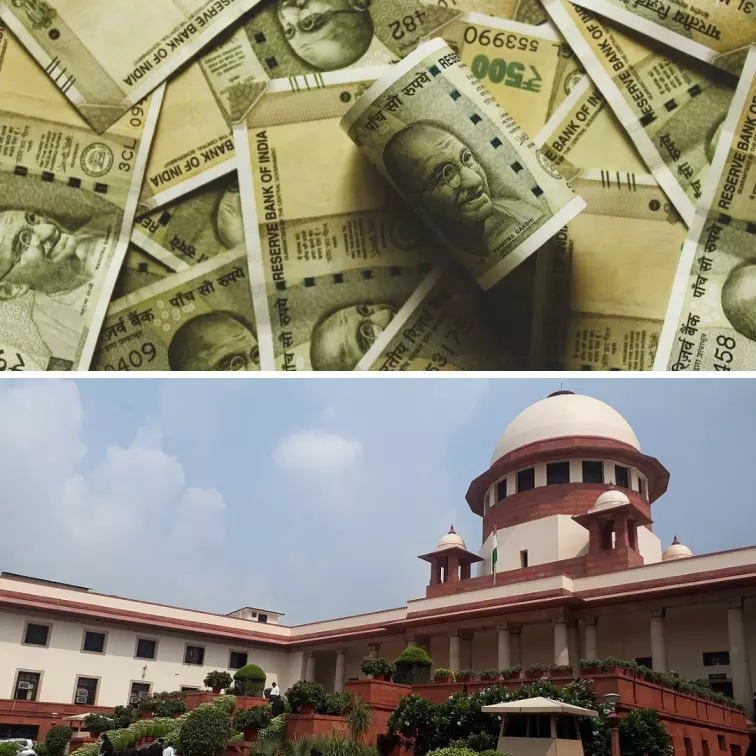Demonetisation Verdict: Supreme Court Upholds Centre's Decision, Cites Consultation Between Govt & RBI For 6 Months
Writer: Hardik Bhardwaj
He is a student of SIMC, who is organized and able to meet deadlines in a fast-paced environment.
India, 2 Jan 2023 1:26 PM GMT | Updated 2 Jan 2023 1:56 PM GMT
Editor : Jayali Wavhal |
She writes about gender issues, human interest, and environment.
Creatives : Jayali Wavhal
She writes about gender issues, human interest, and environment.
The apex court, by a 4:1 majority, affirmed the central government's 2016 decision to demonetise the ₹500 and ₹1,000 currency. The court upheld that the demonetisation move was legitimate and passed the proportionality test.
A Supreme Court Constitution Bench affirmed the central government's decision to demonetise currency notes with denominations of ₹500 and ₹1,000 six years ago on Monday by a 4:1 majority. According to a five-judge bench of the Supreme Court chaired by Justice S. A. Nazeer, the RBI and The Union government were in consultation during the decision-making process. The court upheld that the demonetisation move was legitimate and passed the proportionality test.
Most petitions questioned the legality of the unexpected move that resulted in currency notes worth 86% of the money in circulation becoming 'worthless pieces of paper.' Some petitions also asked for a new opportunity to swap discarded notes because they couldn't be exchanged by the deadline.
Move Passed Proportionality
The Reserve Bank of India and the government were tasked by the Supreme Court on December 7 to record all pertinent documents about the demonetisation decision. The Supreme Court had hinted that it might not overturn demonetisation during the hearing in November-December, saying that 'the clock cannot be turned back.' However, it also said that the arguments might prompt it to establish rules for similar exercises in the future.
The Supreme Court responded by stating that documentation demonstrates that the RBI was consulted and that the government collaborated with it for six months before the announcement in November 2016.
In response to Justice Nagarathna, Justice Gavai said that the RBI cannot enact demonetisation on its own. According to section 26(2) of the RBI Act, there has been no excessive delegation. Hence it cannot be invalidated. The proportionality test is passed, and the notification is valid. Hence, he added that the time frame for the exchange of notes could not be deemed unreasonable.
Opposition Questions The Move
Congress leader and the petitioners' attorney P Chidambaram has stated that the government cannot propose any legislation pertaining to legal tender because this can only happen on RBI's advice. After accepting the decision and stating that he is obliged to accept it, he said there are a few important things to 'bring out.'
In a series of tweets, Chidambaram said that the majority has not endorsed the decision's wisdom or concluded that the decision's stated goals were accomplished. He also said that the majority had avoided the question of whether the objectives were indeed attained.
Once the Hon'ble Supreme Court has declared the law, we are obliged to accept it.
— P. Chidambaram (@PChidambaram_IN) January 2, 2023
The lone member of the five-judge committee to speak against the note ban was Justice BV Nagarathna. Nagarathna referred to the government's action as 'illegal.' She referenced section 26 of the Reserve Bank of India Act to back up her allegation that the RBI ought to have independently counselled against demonetisation. She insisted that the RBI had not used its judgement on its own.
Also Read: Third Anniversary Of Demonetisation: How Decision 'Broke The Backbone Of Indian Economy'
 All section
All section














